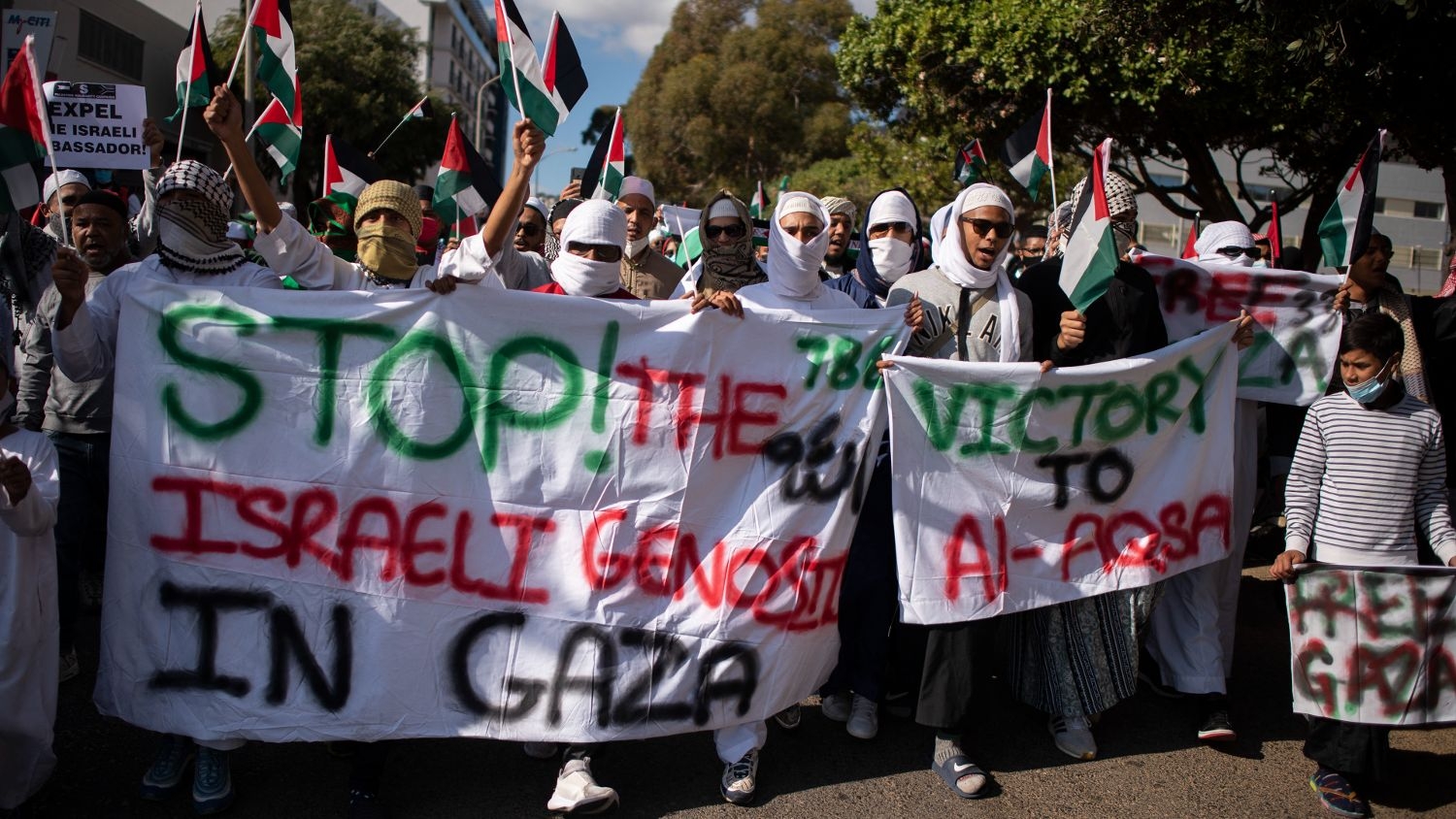War on Gaza: South Africa files genocide case against Israel at International Court of Justice

South Africa has filed a case against Israel at the UN's International Court of Justice (ICJ) accusing the state of committing "genocidal acts" against Palestinians in Gaza.
In a 84-page submission to the ICJ, Pretoria alleged Israel was in breach of its obligations under the Genocide Convention and pressed the court to convene in the next few days to issue "provisional measures" calling for a ceasefire.
It said such an order was necessary "to protect against further, severe and irreparable harm to the rights of the Palestinian people."
"Israel has engaged in, is engaging in and risks further engaging in genocidal acts against the Palestinian people in Gaza," the application said.
The ICJ should declare "on an urgent basis that Israel is in breach of its obligations in terms of the Genocide Convention, should immediately cease all acts and measures in breach of those obligations and take a number of related actions," it added.
New MEE newsletter: Jerusalem Dispatch
Sign up to get the latest insights and analysis on Israel-Palestine, alongside Turkey Unpacked and other MEE newsletters
The UN's Genocide Convention and the Rome Statute of the International Criminal Court define genocide as acts "committed with intent to destroy, in whole or in part, a national, ethnical, racial or religious group".
Legal experts, UN officials and more than 800 scholars have already warned that Israel is potentially committing genocide against Palestinians.
The submission is the latest move by South Africa to put pressure on Israel to end its war on Gaza. Last month, lawmakers voted in favour of closing down the Israeli embassy in Pretoria and severing diplomatic ties with Israel until a ceasefire was agreed upon.
Israel vehemently rejected Friday's announcement and blamed Hamas for the death and suffering of the Palestinian people in Gaza.
"Israel has made it clear that the residents of the Gaza Strip are not the enemy, and is making every effort to limit harm to the non-involved and to allow humanitarian aid to enter the Gaza Strip," the Israeli foreign ministry said in a statement.
Follow Middle East Eye's live coverage of the Israel-Palestine war
The ICJ is one of the six principal organs of the United Nations and is separate from the International Criminal Court (ICC), which tries individuals for war crimes and crimes against humanity.
While the ICJ settles disputes between countries, it has no power to enforce its opinions despite them being legally binding.
Analysts have previously told MEE that while the ICJ's decisions are difficult to enforce, this latest application could shift narratives on the war on Gaza and affect Israel's international reputation.
War broke out in Israel and Gaza on 7 October, when Hamas and armed Palestinian groups launched an attack on southern Israel that killed 1,200 Israelis and other nationals.
Since then, Israel has killed more than 21,000 Palestinians, the majority being women and children.
Israeli air strikes and shelling have laid waste to civilian infrastructure, including hospitals, residential neighbourhoods, ambulances, and mosques. Entire residential neighbourhoods in the enclave have been levelled.
South Africa has long supported Palestinian statehood and has also equated the plight of Palestinians to those of the Black majority in its own country during the time of apartheid. Israel vehemently denies it engages in apartheid.
Middle East Eye delivers independent and unrivalled coverage and analysis of the Middle East, North Africa and beyond. To learn more about republishing this content and the associated fees, please fill out this form. More about MEE can be found here.




